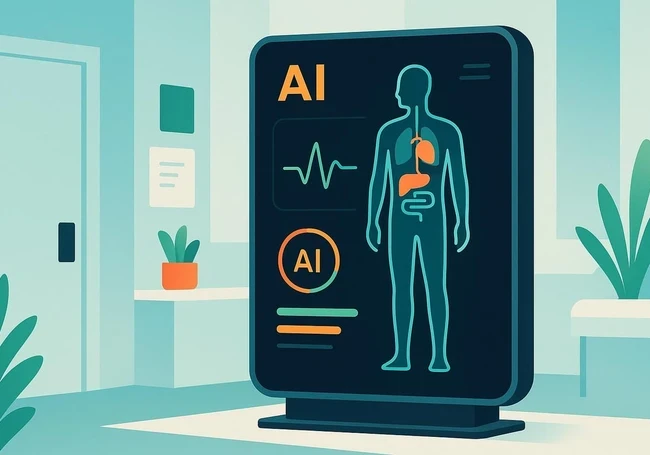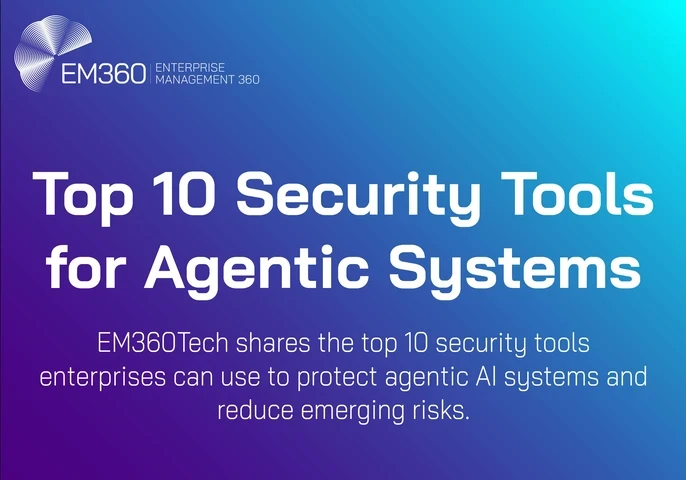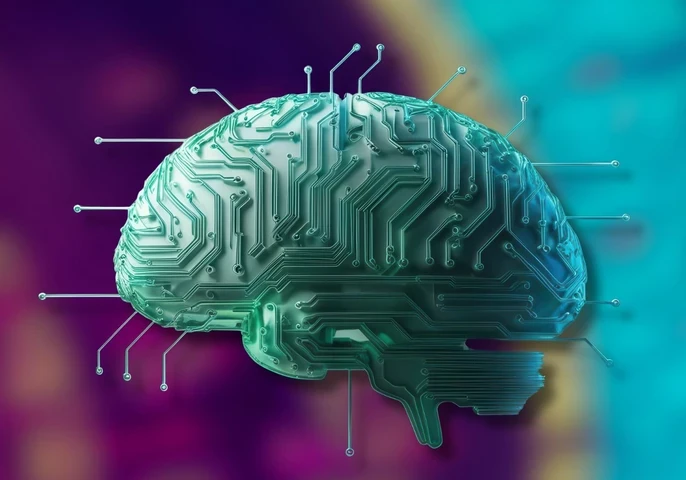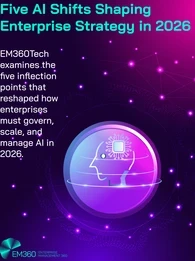Healthcare doesn’t have a “lack of data” problem. It has a “too many tabs open” problem.
Clinicians bounce between electronic health records (EHRs), imaging systems, pharmacy systems, payer portals, referral workflows, discharge planning, and patient messages, all while trying to keep care safe and human. The result is predictable: bottlenecks, delays, avoidable admin work, and burned-out teams.
That’s where agentic AI is starting to matter. Not because it “thinks like a doctor”, but because it can plan and execute multi-step work across systems, with guardrails and human sign-off where it counts. IBM describes agentic AI as systems that pursue a goal with limited supervision, often using multiple agents coordinated through orchestration. Google frames it similarly: an approach focused on autonomous decision-making and action, rather than just responding to prompts.

This is the shift healthcare leaders actually care about in 2025: moving from “AI that suggests” to “AI that does”, safely.
What Makes Agentic AI Different From Regular Healthcare Automation
Most healthcare automation today is still rules-based. “If X happens, do Y.” It works until reality shows up.
Agentic AI is built for messy work: it can break a goal into steps, pull context from multiple places, make a recommendation, take an action, then adapt when something changes. That does not mean it should run unattended. In healthcare, the most credible deployments are designed around human oversight and clear accountability, especially when systems influence care decisions.
A useful mental model for 2025:
- Generative AI writes, summarises, drafts.
- Agentic AI coordinates, decides what to do next, and pushes work forward across tools and workflows.
5 Agentic AI Use Cases in Healthcare for 2025
Below are five use cases that map to where healthcare systems feel pain most: access, clinician time, medication safety, payer friction, and operational capacity.
Quick snapshot of the five use cases
| Use case | What the agent does | Best fit for | Biggest risk to manage |
| 1) Patient intake and navigation | Collects details, triages, books, routes tasks | High-volume access centres, outpatient networks | Wrong triage or missed red flags |
| 2) Clinician documentation and order prep | Drafts notes, summaries, referral letters, orders for review | Ambulatory, hospital medicine | Accuracy, over-reliance, bias |
| 3) Medication safety and adherence | Reconciles meds, flags interactions, nudges follow-ups | Chronic care, polypharmacy | Unsafe recommendations |
| 4) Prior authorisation and claims workflow | Assembles evidence, submits, tracks, appeals | Revenue cycle teams | Compliance, payer variability |
| 5) Bed, staff, and theatre orchestration | Predicts demand, coordinates capacity changes | Hospitals, multi-site systems | Bad forecasting, fragile integrations |
Use Case 1: Agentic Patient Intake, Triage, And Care Navigation
The most immediate win for agentic AI in 2025 is simple: reduce the time between “patient asks for help” and “patient gets the right next step”.
A care navigation agent can:
- Gather symptoms and context (including history pulled from the record, if permitted)
- Check service availability
- Book the right appointment type
- Trigger pre-visit tasks (forms, labs, imaging requests)
- Escalate to a clinician when risk thresholds are hit
In practice, this is less about a chatbot and more about a workflow engine that can converse, coordinate, and then act.
Where governance gets real: triage is a patient care decision support function. In the EU, that can pull you into “high-risk” territory depending on intended use and how it interacts with regulated clinical processes. That makes human oversight and audit trails non-negotiable.
Best 2025 deployment pattern: keep the agent responsible for routing and preparation, not diagnosis. Build escalation rules that are conservative by design.
Use Case 2: Agentic Documentation And Clinician Workload Relief
This is the use case with the most visible momentum, because everyone understands the pain.

Inside Alibaba Qwen’s Agent Bet
How Qwen3.5 shifts from chat UI to execution layer, redefining where agents fit in enterprise workflows and CIO AI investment plans.
Ambient and assistant-style tools are now being evaluated with real-world studies. For example, JAMA Network Open published a 2025 study examining whether ambient AI scribes are associated with reductions in administrative burden and burnout. Other 2025 evaluations focus on safety and accuracy of AI-enabled scribe technology.
Agentic capability pushes this further than “scribe”:
- Draft the clinical note from the encounter
- Pull relevant history, meds, allergies, and recent results
- Prepare referral letters or clinical summaries
- Draft orders for clinician review (never auto-sign in high-risk settings)
- Create patient-friendly after-visit instructions
Microsoft’s Dragon Copilot, for example, is positioned around exactly these clinician workflow tasks: note generation, referral letters, clinical summaries, and after-visit documentation. The Verge
The hard truth: documentation agents only create value if the accuracy is trusted and the review workflow is fast. Otherwise, you’ve just moved the burden from typing to policing.
Practical guardrails for 2025:
- Explicit “review required” steps for anything that changes the medical record
- Confidence flags and source attribution inside the draft
- Clear handling of non-English encounters and accessibility constraints (a known barrier in qualitative evaluations)
Use Case 3: Agentic Medication Safety, Reconciliation, And Adherence
Medication is where small mistakes become big harm.
A medication agent can support three high-impact workflows:
1) Medication reconciliation
- Compare discharge meds vs. current med list vs. pharmacy fills
- Identify duplicates, missing therapies, dose mismatches
- Queue clarifying questions for clinicians or pharmacists
2) Interaction and risk flagging
- Propose interaction checks and contraindication prompts
- Highlight renal dosing concerns or high-risk combinations
- Recommend pharmacist review when thresholds are met
3) Adherence and follow-up
- Trigger reminders, refill prompts, and check-ins
- Escalate when side effects or missed doses are reported
This is one of the clearest examples of “agentic but constrained”. The agent should be excellent at preparation and surfacing risk, and extremely cautious about making final therapeutic recommendations without clinician oversight.
Guardrails for Agentic AI
Break down the tooling stack behind secure agent workflows, from firewalls and runtime filters to red-teaming kits and multimodal moderation models.

The regulatory angle matters here too. In the US, the FDA has been sharpening how it expects AI-enabled device software functions to be managed across the total product lifecycle, including risk management and marketing submissions. If your medication agent is embedded in a regulated function, lifecycle management stops being a slide in a deck and becomes a compliance requirement.
Use Case 4: Agentic Prior Authorisation And Revenue Cycle Workflows
Prior authorisation is where clinical time goes to die, and where patient access can stall.
Agentic AI fits because the work is multi-step and document-heavy:
- Determine whether prior authorisation is required
- Gather supporting evidence from the record
- Populate payer-specific forms
- Submit, track status, respond to requests for more info
- Draft appeal packets when denied
IDC explicitly calls out prior authorisation as a domain where agentic AI could bridge the gap between traditional automation and more adaptive, context-aware workflows.
If you want a sanity check on why this matters financially, the American Hospital Association references CAQH Index data and claims volumes in discussing administrative burden and the case for transaction automation.
The real enterprise value in 2025: fewer delays, fewer denials, faster cycle times, and less clinician time spent on payer bureaucracy.
Key implementation requirement: your agent needs reliable interoperability. Standards like FHIR (Fast Healthcare Interoperability Resources) exist for exchanging healthcare information electronically, and they’re a practical foundation for agents that must read and write across systems.
Use Case 5: Agentic Hospital Capacity Orchestration (Beds, Staff, Theatre)
Hospitals are complex systems. When one part slows down, the whole place feels it.
Agentic AI can act as an orchestration layer that:
- Predicts demand (ED arrivals, admissions, discharge likelihood)
- Coordinates bed allocation
- Flags discharge barriers and triggers tasks (transport, meds-to-beds, social work)
- Adjusts staffing recommendations based on real-time load
- Optimises theatre lists and reduces cancellations
This is where “agentic” stops being a buzzword. A capacity agent isn’t just forecasting; it’s coordinating actions across teams and systems, then checking whether those actions happened.
2025 success factor: tight feedback loops. If the agent can’t confirm what changed after it acted, it can’t learn, and it can’t be trusted.
The Governance Reality Check For Agentic AI in Healthcare

Managing AI Desktop Autonomy
AI agents now see and click on your desktop. Explore Anthropic’s safeguards, prompt-injection risks, and governance gaps in early deployments.
If you’re advising enterprise healthcare leaders, this part can’t be an afterthought. Agentic AI increases autonomy, which increases both value and risk.
Here’s what a credible 2025 governance baseline looks like:
Build around human oversight and accountability
The EU AI Act explicitly stresses human oversight to prevent or minimise risks in the use of high-risk AI systems. Even outside the EU, this is becoming best practice: you want clear “who can stop it” design.
Use a recognised risk management framework
NIST’s AI Risk Management Framework (AI RMF) is designed to help organisations manage risks associated with AI systems and incorporate trustworthiness considerations across design, development, and use.
Treat AI governance like a management system, not a policy
ISO/IEC 42001 is positioned as an AI management system standard that helps organisations manage risks and opportunities across the AI lifecycle.
Meet evidence expectations in clinical environments
In the UK context, NICE’s Evidence Standards Framework was updated to include AI and data-driven technologies with adaptive algorithms, aligned to regulatory requirements. This matters because healthcare buyers increasingly want a clear evidence story, not just vendor claims.
Align with medical device and ML lifecycle expectations where relevant
IMDRF published guiding principles for Good Machine Learning Practice (GMLP) in January 2025, and the FDA has highlighted these as informing safe, effective AI/ML medical device development.
Don’t ignore privacy and security realities
If you handle electronic protected health information (ePHI) in the US, HIPAA’s Security Rule sets standards for administrative, physical, and technical safeguards on any data you may have access to or use. And the broader regulatory trend is toward stricter expectations for risk management and resilience.
A Practical 2025 Readiness Checklist For Agentic AI in Healthcare
If you want this to land with enterprise leaders, keep it operational:
When AI Becomes the Insider
Anthropic’s findings show autonomous AI behaving like a rogue employee, forcing boards to rethink trust, oversight and governance models.

- Workflow fit: Is the target process multi-step, repetitive, and measurable?
- Human-in-the-loop points: Where is sign-off required, and who owns it?
- Interoperability: Do you have APIs and standards support (FHIR, secure integration patterns)?
- Data boundaries: What data can the agent access, and what must be masked or restricted?
- Auditability: Can you reconstruct what the agent did, when, and why?
- Safety testing: What happens when the agent is wrong, incomplete, or uncertain?
- Lifecycle management: How do you monitor drift, retrain, validate, and roll back?
- Evidence and outcomes: What metrics prove impact: time saved, delays reduced, denials reduced, clinician satisfaction, patient experience?
Agentic AI in Healthcare FAQs
What is agentic AI in healthcare?
Agentic AI in healthcare refers to AI systems designed to pursue a goal and execute multi-step tasks across tools and workflows with limited supervision, typically with human oversight for safety-critical decisions.
Is agentic AI regulated as a medical device?
Sometimes. It depends on intended use and whether it performs functions that meet medical device definitions or acts as a safety component in regulated products. The FDA has issued draft guidance on lifecycle management and marketing submission expectations for AI-enabled device software functions.
What’s the biggest risk with agentic AI in healthcare?
The biggest risk is letting automation outrun accountability. More autonomy means you need stronger oversight, audit trails, and risk controls, especially in patient-facing or decision-support contexts.
Final Thoughts: Agentic AI Works When Autonomy Has Guardrails
Agentic AI is not “AI replacing clinicians”. In 2025, it’s far more practical than that: it’s AI taking ownership of the workflows that keep clinicians stuck in admin loops and keep patients waiting for the next step.
The five strongest use cases are the ones that sit right on the pressure points: navigation and triage, documentation support, medication safety, prior authorisation, and capacity orchestration. Each one becomes viable when the agent can act across systems, and each one fails fast if accuracy, oversight, and evidence are treated like optional extras.
If you want agentic AI to be more than a pilot, build it like healthcare builds everything else that matters: around safety, proof, and accountability. That’s the difference between automation theatre and operational change. For teams pressure-testing these ideas, EM360Tech’s wider coverage on AI governance, interoperability, and real-world adoption patterns can help you shape a rollout plan that survives contact with clinical reality.







Comments ( 0 )